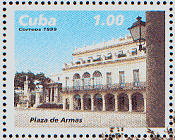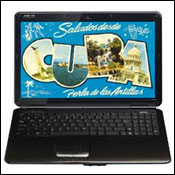 This blog reported several weeks ago on a complaint brought by a small British company against Lloyds for refusing to cash a check in pounds sterling that the company had received from a Cuban customer. Lloyds had previously agreed to pay $217 million to the U.S. Office of Foreign Assets Control (“OFAC”) in connection with fraudulent activities by the bank in order to process payments from sanctioned countries, including Cuba, through U.S. correspondent banks. However, the check that was declined by Lloyds was not denominated in U.S. dollars, did not involve a U.S. customer, and was being cashed outside the United States, meaning that neither the Lloyd’s settlement agreement with OFAC nor OFAC’s own regulations would prohibit the U.K. bank from processing the payment. More significantly, its refusal to cash the check could be seen as a violation of E.U. Council Regulation No. 2271/96 , which forbids companies in the E.U. from complying with the U.S. sanctions on Cuba.
This blog reported several weeks ago on a complaint brought by a small British company against Lloyds for refusing to cash a check in pounds sterling that the company had received from a Cuban customer. Lloyds had previously agreed to pay $217 million to the U.S. Office of Foreign Assets Control (“OFAC”) in connection with fraudulent activities by the bank in order to process payments from sanctioned countries, including Cuba, through U.S. correspondent banks. However, the check that was declined by Lloyds was not denominated in U.S. dollars, did not involve a U.S. customer, and was being cashed outside the United States, meaning that neither the Lloyd’s settlement agreement with OFAC nor OFAC’s own regulations would prohibit the U.K. bank from processing the payment. More significantly, its refusal to cash the check could be seen as a violation of E.U. Council Regulation No. 2271/96 , which forbids companies in the E.U. from complying with the U.S. sanctions on Cuba.
According to an article on the website of London broadsheet The Daily Telegraph, some U.K. banks may be walking back, at least slightly, from a hard and fast policy of not processing Cuban payments for fear of OFAC reprisal. Interestingly, the article notes that part of the banks’ hesitance arises from “US attempts to extradite British executives it claims have breached sanctions” and “the failure of the British Government to provide protection against extradition.” This is presumably a reference to the pending extradition request against Christopher Tappin for his involvement in an attempted export of batteries from the United States to Iran.
The Telegraph article suggests that British authorities have been in contact with Lloyds and other banks after receiving a number of complaints from customers that could not clear Cuba checks. One case involved a customer whose account was closed by Bank of Scotland when the customer would not provide assurances that it would not receive Cuban payments in its account.
Now, presumably as a result of these official contacts, even Lloyds may be softening its hard line on Cuba transactions. The Telegraph reporter Roland Gribben signals this change in the following fractured sentence that suggests he may not have a very clear grasp of export law himself.
If the Cuban bank does not infringe OFAC regulations or has dealings with Specially Designated Individuals who can be either individuals, entities or banks, then Lloyds may be willing to process a payment from Cuba provided it was in sterling.
Probably what Lloyds was saying before Mr. Gribben garbled their statement was that Lloyds would process checks in pounds provided that parties on OFAC’s List of Specially Designated Nationals and Blocked Persons were not involved in the transaction.

 Posted by
Posted by  Category:
Category: 

 A convoy of buses organized by Pastors for Peace with goods destined for Cuba
A convoy of buses organized by Pastors for Peace with goods destined for Cuba  The latest monthly
The latest monthly  On June 30, the
On June 30, the 

